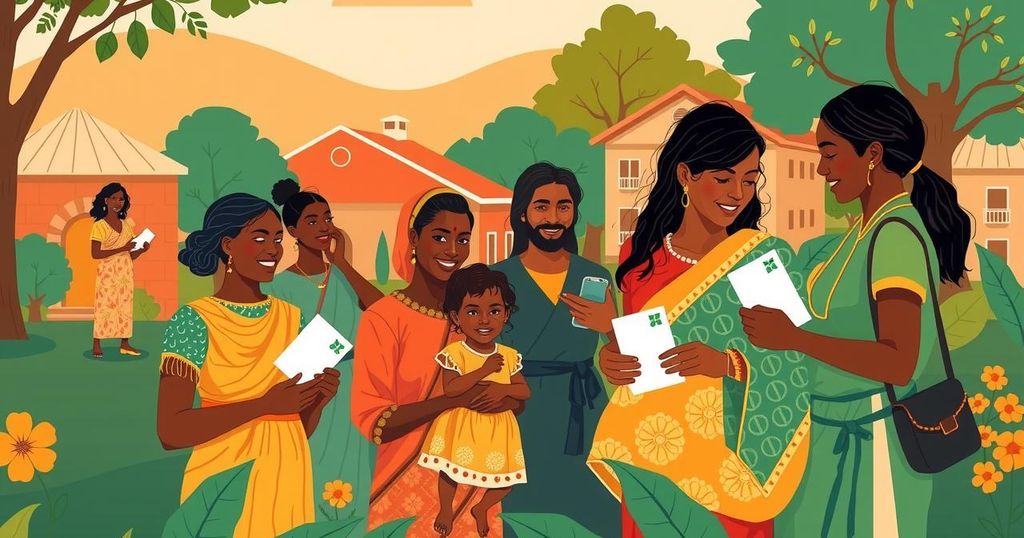Zimbabwe’s First-Time Mothers Face Extortion for ‘Free’ Child Health Cards
In Zimbabwe, new mothers face extortion for Child Health Cards, which are supposed to be free yet are sold under the table at clinics. This shortage, attributed to corruption and supply chain issues, forces mothers to document their children’s health on scraps of paper. Economic pressures further complicate access to maternal health services, with the potential return of maternity fees adding to the burden on families.
Zimbabwe’s first-time mothers, such as Connie Jowa, are struggling to obtain Child Health Cards which have mysteriously gone out of stock at public clinics. This crucial document, essential for tracking a child’s vaccinations and medical history, has fallen victim to a shadow market where clinic staff sell these cards under the table. Despite being intended to be free, many mothers are forced to purchase them, exposing systemic corruption within the healthcare system.
The clandestine operation has become an open secret among mothers and clinic staff. Simbarashe James Tafirenyika of the Zimbabwe Municipality’s Nurses and Allied Workers Union revealed that nurses often sell the cards, pocketing significant sums without any financial benefit reaching the government. Reports indicate that the market price for a Child Health Card stands at approximately US$5, exacerbating the plight of those who cannot afford this added expense.
Without the official cards, mothers are left to maintain their infants’ medical records on paper scraps, leading to confusion and anxiety regarding their children’s vaccinations and health procedures. Nurse aides have confirmed the existence of a bribery culture, where mothers are subtly encouraged to be “skillful” in acquiring the cards. Despite the Ministry of Health’s claim of free card distribution, evidence of exploitation and erratic supplies point to systemic issues.
Economic issues compound the problem, as high inflation and budget constraints have returned maternity fees in public hospitals, although this has not been officially confirmed. The results-based financing model previously allowed over a million women to deliver at no cost, but the reintroduction of user fees now burdens new mothers who also shoulder additional costs for better care.
Valerie Shangwa, who gave birth recently, has yet to receive a card for her child. The difficulties in maintaining accurate health records highlight the critical impact of this shortage. The government insists the card shortage results from supply chain inefficiencies, emphasizing the need for improved resource mobilization to address the situation. Meanwhile, desperate mothers are forced to pay or face a lack of essential healthcare documentation for their children.
The ongoing crisis in Zimbabwe’s healthcare system, particularly regarding Child Health Cards, reveals significant challenges that first-time mothers face. The artificial shortage perpetuated by opportunistic clinic staff results in a shadow market for these essential documents, undermining the integrity of healthcare access. With economic pressures leading to the reintroduction of maternity fees and forms of corruption, urgent reforms are necessary to restore the trust and provision of free maternal health services.
Original Source: www.thezimbabwean.co




Post Comment